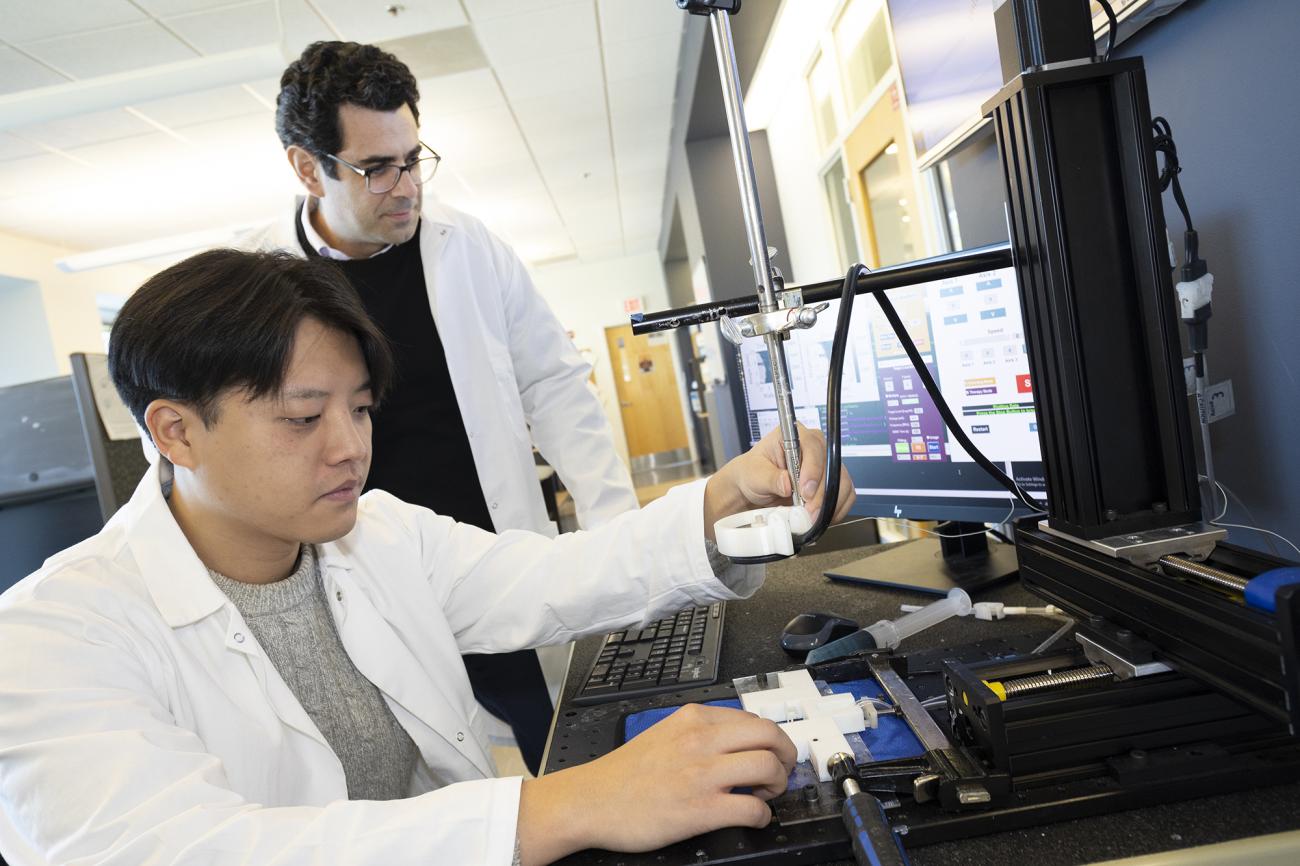Algorithm-controlled focused ultrasound system uses microbubbles to open a pathway for a powerful immunotherapy to reach brain tumors
Associate Professor Costas Arvanitis and mechanical engineering Ph.D. student Hohyun "Henry" Lee with their closed-loop controlled focused ultrasound system. The system uses ultrasound-induced microbubbles to help a powerful immunotherapy target brain tumors and a custom algorithm to continuously fine tune the bubbles for maximum impact. (Photo: Candler Hobbs)
“Closing the loop” has become one of the jargony cliches of the business world. But in the world of cancer immunotherapy, closing the loop could be an innovation that unlocks powerful therapies for hard-to-treat brain cancers called glioblastomas.
Researchers at Georgia Tech and Emory University have developed a system that uses ultrasound-induced microbubbles to help a powerful immunotherapy target brain tumors and a custom algorithm to continuously fine tune the bubbles for maximum impact.
Their closed-loop controlled focused ultrasound system proved effective in boosting survival rates in mouse models, including eradicating the entire tumor in at least one case. They described their approach Nov. 18 in the journal Science Advances.
Latest BME News
Jo honored for his impact on science and mentorship
The department rises to the top in biomedical engineering programs for undergraduate education.
Commercialization program in Coulter BME announces project teams who will receive support to get their research to market.
Courses in the Wallace H. Coulter Department of Biomedical Engineering are being reformatted to incorporate AI and machine learning so students are prepared for a data-driven biotech sector.
Influenced by her mother's journey in engineering, Sriya Surapaneni hopes to inspire other young women in the field.
Coulter BME Professor Earns Tenure, Eyes Future of Innovation in Health and Medicine
The grant will fund the development of cutting-edge technology that could detect colorectal cancer through a simple breath test
The surgical support device landed Coulter BME its 4th consecutive win for the College of Engineering competition.








